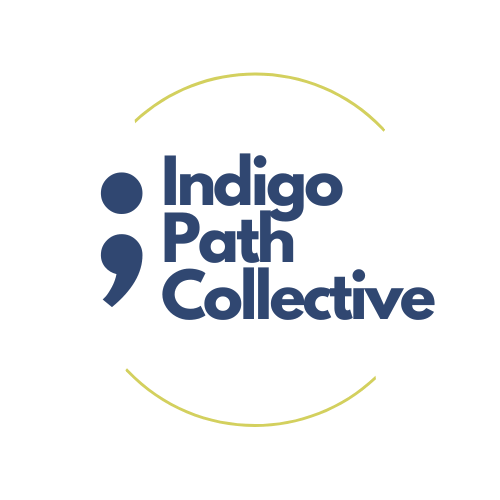When Faith Hurts: The Mental and Behavioral Health Toll of Christian Nationalism, Whiteness, and Capitalism in the south
Introduction
About 62 percent of U.S. adults identify as Christian, compared to 68 percent in the South (Pew Research Center, 2025; Pew Research Center, n.d.). For many, religion provides meaning and comfort. But for others living under overlapping systems of Christian nationalism, white supremacy, and capitalist pressure, faith becomes a site of trauma. These forces reinforce each other and create mental and behavioral health burdens, especially for people raised in rigid religious contexts or marginalized by dominant faith narratives.
Understanding the Overlap
Christian nationalism, whiteness, and capitalism can appear as separate issues. Yet their intersection, the shared space in a Venn diagram, often causes the deepest harm.
Christian nationalism merges faith with political authority. For example, Lieutenant Governor Mark Robinson led church-based political events in North Carolina and advocated for Christian influence in government and public schooling (Truthout, 2024; Yahoo News, 2023).
Whiteness shapes who is deemed moral or trustworthy. This harkens back to slavery in the United States when biblical passages were used to justify racial hierarchy and bondage. For example, Ephesians 6:5 was recited to demand obedience from enslaved people. This historical use of scripture has echoed through faith-based norms ever since (Time, 2018; Bible Hub, n.d.).
Capitalism links spiritual virtue to financial success. The “One Big Beautiful Bill” legislation would reduce Medicaid funding by roughly one trillion dollars over ten years while offering tax breaks for the wealthiest one percent (Center for American Progress, 2024; Kaiser Family Foundation, 2025).
Combined, these systems shame nonconformity, blame individuals for systemic struggles, and mask injustice behind religious rhetoric.
Mental and Behavioral Health Effects Across Contexts
Personal
Religious teachings that blame suffering on moral failure can cause anxiety, depression, substance misuse, chronic stress and illness, autoimmune disease, identity confusion, and more.
Family and Community
Families and churches often use spiritual authority to control personal decisions such as who to marry, how to parent, or whether to seek medical care. These pressures can exacerbate chronic illnesses and widen gaps in mental and behavioral health access.
Society
State laws shaped by religious dogma and deep Medicaid cuts threaten public health infrastructure. An estimated 10.3 million people risk losing insurance by 2034 (Kaiser Family Foundation, 2025; Center for American Progress, 2024). These policies worsen stress, exacerbate illness, increase medical mistrust, and widen gaps in mental and behavioral health access.
Why It Matters for Mental and Behavioral Health
Sometimes illness is more about what happened to you and around you. Naming how religious, racial, and economic systems come together can bring clarity to your pain, which is treatable. Trauma-informed care approaches such as Acceptance and Commitment Therapy, Internal Family Systems, Eye Movement Desensitization and Reprocessing, and clinical hypnosis have strong evidence for helping people recover from trauma and stress (Hayes et al., 2006; Schwartz & Sweezy, 2021; Shapiro, 2018; Montgomery, 2019). These evidence-based modalities support people in exploring identity, grief, family dynamics, religious abuse, and systemic impact without assigning personal blame.
Next Steps
If this resonates with your experiences, you do not have to navigate it alone. Indigo Path Collective offers a free consultation to help you explore whether trauma-informed virtual therapy is the right path for you. Sign up today for a free consultation.
References
Bible Hub. (n.d.). Ephesians 6:5. https://biblehub.com/ephesians/6-5.htm
Center for American Progress. (2024, July 3). $1 trillion in Medicaid cuts, $1 trillion in tax giveaways for the richest 1 percent: The One Big Beautiful Bill’s budget math. https://www.americanprogress.org/article/1-trillion-in-medicaid-cuts-1-trillion-in-tax-giveaways-for-the-richest-1-percent-the-one-big-beautiful-bills-budget-math/
Hayes, S. C., Strosahl, K. D., & Wilson, K. G. (2006). Acceptance and commitment therapy: An experiential approach to behavior change. Guilford Press.
Kaiser Family Foundation. (2025). Allocating CBO’s estimates of federal Medicaid reductions across the states. https://www.kff.org/medicaid/issue-brief/allocating-cbos-estimates-of-federal-medicaid-reductions/
Montgomery, D. (2019). Handbook of clinical hypnosis. American Psychological Association.
Pew Research Center. (2025, February 26). The decline of Christianity in the United States has slowed. https://www.pewresearch.org/religion/2025/02/26/decline-of-christianity-in-the-us-has-slowed/
Pew Research Center. (n.d.). Religious landscape study: South. https://www.pewresearch.org/religious-landscape-study/region/south/
Schwartz, R. C., & Sweezy, M. (2021). Internal family systems therapy (2nd ed.). Guilford Press.
Shapiro, F. (2018). Eye movement desensitization and reprocessing (EMDR) therapy, third edition: Basic principles, protocols, and procedures. Guilford Press.
Time. (2018, March 27). Christianity and slavery book excerpt. https://time.com/5171819/christianity-slavery-book-excerpt/
Truthout. (2024, August 1). Christian nationalists pursue state capture and North Carolina is Exhibit A. https://truthout.org/articles/christian-nationalists-pursue-state-capture-and-north-carolina-is-exhibit-a/
Yahoo News. (2023, November 6). North Carolina Lt. Gov. takes Christian nationalism to dangerous low. https://www.yahoo.com/news/opinion-folks-killing-north-carolina-105735520.html

